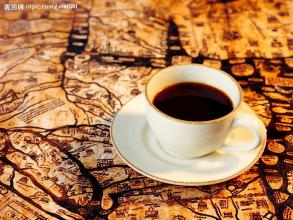Introduction to high-quality coffee with rich and perfect taste characteristics of Kenyan coffee manor
Kenya maintains a presidential system of government. Since independence, the Kenyan League has been in power for a long time. After changing to a multi-party system in 1991, the Kenyan League won two consecutive multi-party elections in 1992 and 1997, and Moi was re-elected president. In the third multi-party general election held in December 2002, the opposition coalition National Rainbow Alliance (all League) defeated the Kenya League, Kibaki was elected president, and the League won a majority of seats in parliament. After the general election in December 2007, national riots were caused by disputes over the election results between the ruling National Unity Party and the opposition Orange Democratic Movement. Under the mediation of former UN Secretary General Kofi Annan, the two parties to the dispute signed the Agreement on the principles of Partnership of the Coalition Government on February 28, 2008 and formed a coalition government on April 13. The leader of the ruling party, Mwai Kibaki, is president, and the leader of the opposition, Odinga, is the new prime minister. In March 2013, Kenya held a new general election, "Jubilee Alliance" candidate Kenyatta defeated the "Alliance for Reform and Democracy" candidate Odinga, was elected the fourth president of Kenya. On April 9, Kenyatta was sworn in. [5]
Constitution
The Constitution of the Republic was promulgated in 1964 and has been amended 30 times by September 2014. In June 1982, Ken established an one-party system by amending the constitution. In December 1991, it was changed to a multi-party system, which stipulates that the president is willing to be a multi-party democratic country, and the president is the head of state, head of government and commander-in-chief of the armed forces for a term of five years, and shall not be re-elected for more than two terms; the president-elect shall, while obtaining a majority of votes, win more than 25% of the votes in five of the country's eight provinces; the president has the highest executive power and the power of appointment and removal, and has the power to convene or dissolve parliament; the president and cabinet are collectively responsible to parliament. Citizens enjoy freedom of religious belief, expression, assembly, association and movement. Since 1997, the opposition party in Kenya has strongly demanded a comprehensive revision of the constitution on the grounds that the constitution does not meet the requirements of the multi-party system. In September 1997, Ken promulgated the draft Constitutional Amendment Commission Bill and began to amend the Constitution. In February 2006, President Kibaki announced the establishment of a new constitutional amendment committee to replace the original constitutional amendment commission whose term of office expires. Since February 29, 2008, the disputed parties to the Kenyan general election have entered the fourth agenda of the mediation "road map" under Annan mediation (that is, the resolution of "long-term problems", including land, constitutional amendment, tribal conflicts, etc.). In May 2008, the two sides indicated that the negotiations on agenda 4 were drawing to a close and had basically reached consensus in the areas of land reform, constitutional amendment and poverty reduction. In November 2009, the National Dialogue and Reconciliation Commission approved the texts of the Kenya Constitutional Amendment Act 2008 and the Kenyan Constitutional Amendment 2008. In April 2010, the draft constitution of Kenya was approved by Parliament, passed a referendum in August and formally promulgated and implemented, its main contents include: maintaining the presidential system of government, no longer establishing the post of prime minister, but the presidential power has been weakened; the parliament has been changed into a bicameral system, with the addition of a Senate; the administrative division has been changed from the central, provincial, regional, district, township and village levels to the central and county levels.
Kenyan coffee beans the Kenyan government takes the coffee industry very seriously, where it is illegal to cut down or destroy coffee trees. Kenyan coffee buyers are world-class high-quality coffee buyers, and no other country can grow, produce and sell coffee on a continuous basis like Kenya. All coffee beans are first acquired by the Kenya Coffee Commission (CoffeeBoardofKenya, CBK), where they are identified, graded, and then sold at weekly auctions, where they are no longer graded. The Kenya Coffee Commission only acts as an agent to collect coffee samples and distribute them to buyers so that they can determine the price and quality. The auction in Nairobi is for private exporters, and the Kenya Coffee Commission pays growers a price below the market price. The best coffee grade is bean berry coffee (PB), followed by AA++, AA+, AA, AB and so on. The fine coffee is shiny, delicious and slightly alcoholic. Auctions are also organized to meet the needs of dispatchers. This kind of auction usually has a small auction volume (3-6 tons each), with samples with the grower's logo for buyers to enjoy. After the auction, the exporters pack according to different flavors, different qualities and the quantity required by the blenders. This provides a great deal of flexibility for the dispatcher. Quality-conscious Germans and Scandinavians are long-term buyers of Kenyan coffee.
On an international scale, the increase in the number of Kenyan coffee is obvious, with exports of 800000 bags in 1969-1970 and increased to 2 million bags in 1985-1986. Now the yield is stable at 1.6 million bags, with an average yield of about 650kg per hectare. Even before coffee prices skyrocketed in recent years, the average price of coffee in Kenya had been rising. Prices in 1993-1994 were 50% higher than they were 12 months ago. The rise in prices is mainly the result of increased demand.
Some buyers, especially Japanese businessmen, have expressed dissatisfaction with the Kenyan coffee industry system. Some businessmen say that the quality of coffee in the country has declined, and point out that buying directly from farmers may be a way to improve the quality. But in any case, Kenya's detailed rules and regulations and sound procedures are a model for all coffee-producing countries.
Kenyan Coffee became more famous with the sensation of the Hollywood movie OutofAfrica. Karen, the heroine played by Meryl Streep (MarylStreep), is a writer and coffee plantation owner. Many people may still remember the beautiful scenery and the magnificent sunset in the film, but what is even more unforgettable is Karen's dream of having a coffee plantation in Africa.

Important Notice :
前街咖啡 FrontStreet Coffee has moved to new addredd:
FrontStreet Coffee Address: 315,Donghua East Road,GuangZhou
Tel:020 38364473
- Prev

Brazilian coffee flavor with low sour taste introduction to boutique coffee beans in manor production area
After the establishment of the Brazilian Empire during the Imperial period (1822-1889), the system of the Braganca dynasty and the Portuguese aristocratic forces remained intact, the great manor system and slavery still existed, and Brazil was dependent on Britain economically and politically. Pedro I exercised autocratic rule, forcibly dissolved parliament in 1823, and then used force to suppress Republican uprisings in northeastern provinces such as Pernambuco. 1889
- Next

Smooth taste of Colombian coffee taste characteristics of boutique coffee bean manor varieties
In his letter from Jamaica in 1815, Bolivar envisioned that when South America was liberated from Spanish colonial rule, New Granada and Venezuela should form a country, named Colombia. In August 1819, Bolivar's Patriotic Army defeated the Spanish colonial army at the Battle of Boyaca and liberated Bogota. So, New Granada and Venezuela
Related
- Detailed explanation of Jadeite planting Land in Panamanian Jadeite Manor introduction to the grading system of Jadeite competitive bidding, Red bid, Green bid and Rose Summer
- Story of Coffee planting in Brenka region of Costa Rica Stonehenge Manor anaerobic heavy honey treatment of flavor mouth
- What's on the barrel of Blue Mountain Coffee beans?
- Can American coffee also pull flowers? How to use hot American style to pull out a good-looking pattern?
- Can you make a cold extract with coffee beans? What is the right proportion for cold-extracted coffee formula?
- Indonesian PWN Gold Mandrine Coffee Origin Features Flavor How to Chong? Mandolin coffee is American.
- A brief introduction to the flavor characteristics of Brazilian yellow bourbon coffee beans
- What is the effect of different water quality on the flavor of cold-extracted coffee? What kind of water is best for brewing coffee?
- Why do you think of Rose Summer whenever you mention Panamanian coffee?
- Introduction to the characteristics of authentic blue mountain coffee bean producing areas? What is the CIB Coffee Authority in Jamaica?

